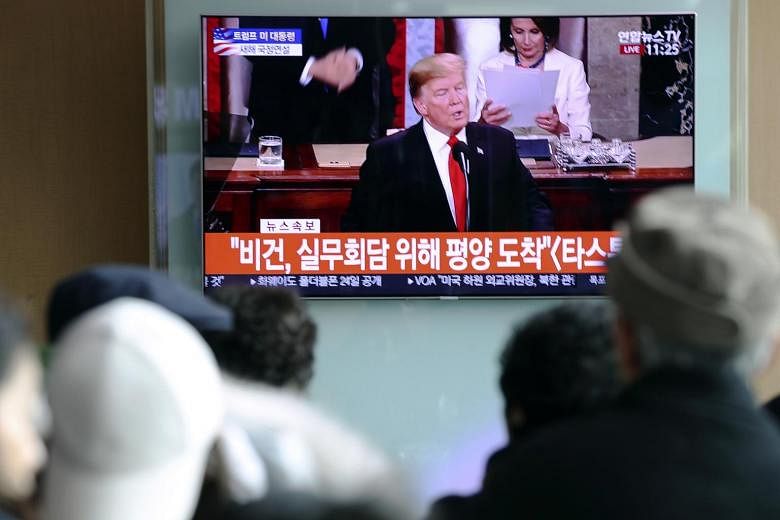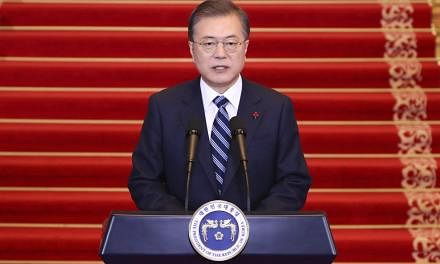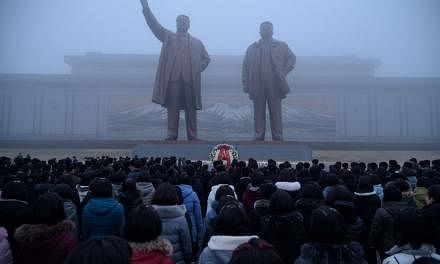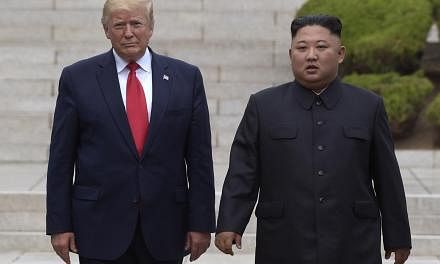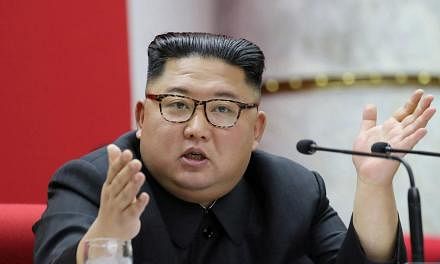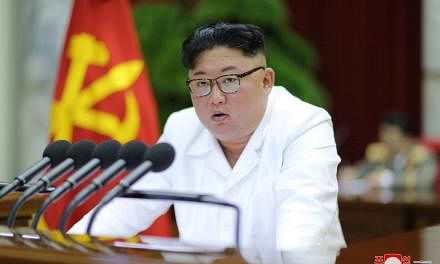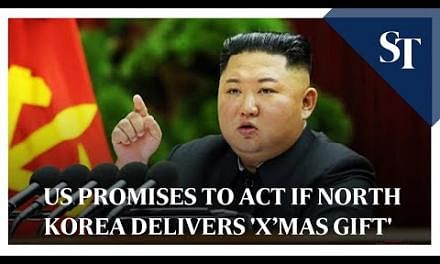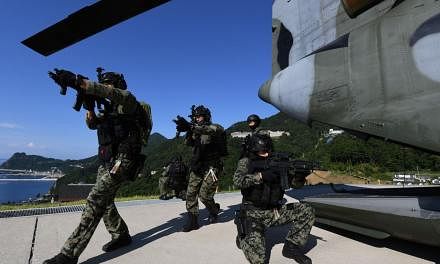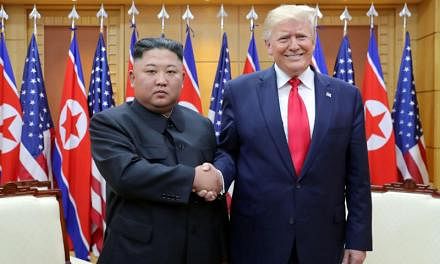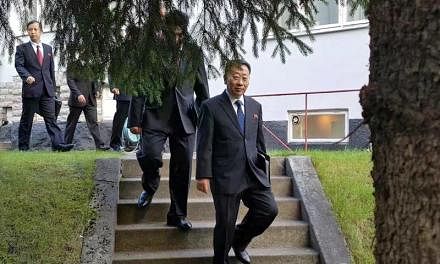SEOUL (KOREA HERALD/ASIA NEWS NETWORK) - Analysts in South Korea have downplayed the possibility that the United States might seek only to avoid a nuclear attack from North Korea directed at the country during the upcoming summit between the leaders of the two countries.
This follows US President Donald Trump's remarks that he is not in a rush to denuclearise North Korea.
While taking credit for averting a war with Pyongyang, Mr Trump said he expects the second summit with North Korean leader Kim Jong Un, slated for Feb 27-28 in Vietnam, to be as successful as the first, where the two leaders had pledged to work towards the complete denuclearisation of the Korean peninsula.
"I'm in no rush for speed. We just don't want testing," Mr Trump said at the White House last Friday (Feb 15).
He reiterated that the US would not lift sanctions. Other US officials, such as Special Representative for North Korea Stephen Biegun, have also said that complete denuclearisation and verification are preconditions for the lifting of sanctions.
Mr Trump's remarks have sparked concerns that the second meeting will focus on dismantling North Korea's intercontinental ballistic missiles - potentially capable of striking the US - rather than comprehensive ways for denuclearisation.
The Trump administration believes that its diplomacy with North Korea has achieved progress by lowering tensions, as Pyongyang did not conduct new missile or nuclear tests last year. From 2011 to 2017, North Korea had fired more than 90 missiles and conducted four nuclear weapons tests.
"As I've said before, it is clear President Trump doesn't care that North Korea isn't disarming. The question is whether some in his administration do," said Associate Professor Vipin Narang at the Massachusetts Institute of Technology.
Local experts, however, view a change in agenda as unlikely.
"The key agenda of the second US-North Korea summit is not to stop North Korea's nuclear or missile test launch, but to dismantle the Yongbyon nuclear facility, which is the core of North Korea's nuclear programme, and further measures and reciprocal steps from the US," said Dr Cheong Seong-chang, vice-president of research planning at the Sejong Institute.
Dr Cheong cited the agreement inked at the inter-Korean summit in September, under which North Korea promised to destroy its main Yongbyon nuclear test site permanently if the US abides by the agreement signed by Mr Trump and Mr Kim on June 12 in Singapore.
"The US is pushing for the second summit after recognising that the permanent dismantling of the Yongbyon nuclear facility could be an important first step towards denuclearising North Korea," he said.
Prof Koh Yu-hwan, a professor of North Korean Studies at Dongguk University, said Mr Trump's remarks indicated that North Korea's actions that could pose a threat to the security of the US are under control.
"This also reveals that Washington will take a step-by-step simultaneous approach leading to denuclearisation, as Steve Biegun stated, rather than the complete, verifiable, irreversible denuclearisation policy that it had been pushing for," he said.
Speaking at Stanford University on Jan 31, Mr Biegun said the US hopes to move "simultaneously and in parallel" with North Korea in implementing the pledges the two leaders made in Singapore last year, including denuclearisation, transforming their relations and building lasting peace on the Korean peninsula.
